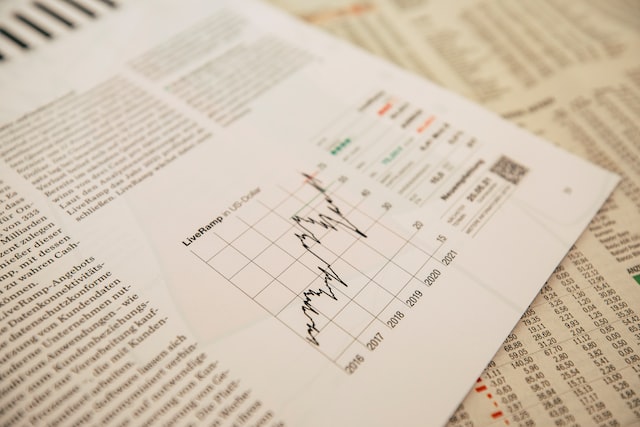It is the moment to invest. How precisely do you spend that cash? A well-diversified portfolio is recommended before buying assets such as bonds and stocks. Stocks and bonds are two of the most traded asset classes, each available through various platforms, marketplaces, and brokers. The main difference is how they make money: most bonds pay set interest over time, but stocks must rise in value and be sold later on the stock market.
Bonds are similar to loans given to a company (a corporate bond) or other organizations, but stocks provide an ownership part in a company (like the U.S. Treasury). Bonds are usually considered to be less risky and stable than equities. There are numerous varieties of stocks and bonds, each having unique volatility, risk, and return profile.
What is the difference between the bond and the Stock market?
 Bonds are usually a loan from you to a corporate or government, whereas stocks give you a share of ownership in a corporation. The main difference is how they make money: most bonds pay set interest over time, but stocks must rise in value and be sold later on the stock market.
Bonds are usually a loan from you to a corporate or government, whereas stocks give you a share of ownership in a corporation. The main difference is how they make money: most bonds pay set interest over time, but stocks must rise in value and be sold later on the stock market.
Here is a closer examination of how the stocks and bonds investments function:
Bond Markets
 Bonds are loans you make to businesses or the government. There's neither any equity involved nor any shares to purchase. Put, a firm or government is in debt to you when you purchase a bond, and it would pay you interest on the loan for a defined term, after which it will pay back the whole amount you bought the bond. However, bonds don't carry zero risk.
Bonds are loans you make to businesses or the government. There's neither any equity involved nor any shares to purchase. Put, a firm or government is in debt to you when you purchase a bond, and it would pay you interest on the loan for a defined term, after which it will pay back the whole amount you bought the bond. However, bonds don't carry zero risk.
You won't receive any interest payments if the company declares bankruptcy during the bond's maturity period, and you might not get your entire principal back. You are lending money for a predetermined period and charging interest when purchasing bonds, credit, or debt security.
Types of bonds
- Treasury Bonds: The U.S. government issues treasury bonds, notes, and banknotes. They are typically considered the safest bonds on the planet, with maturities ranging from four weeks to 30 years.
- Municipal bonds: State and local governments allocate municipal bonds, which are relatively safe and offer higher rates than Treasury bonds.
- Corporate Bonds: Private corporations issue corporate bonds. Bonds can be extraordinarily safe or dangerous depending on the issuer's financial stability and trustworthiness. They compensate the investors for the risk premium in the form of a higher yield.
Where are Bonds Traded?
Because there is no central place for trading in the bond market, most bonds sell over the counter (OTC). As a result, retail investors rarely engage in bond market activity.
Large institutional investors like foundations, pension funds, and endowments, together with investment banks, hedge funds, and asset management companies, are some of those who do. Individual investors can purchase bonds through a bond fund that an asset manager oversees. Individual investors can now directly access corporate bond issuance, Treasuries, and CDs through several brokerages.
New securities are offered for sale in the primary market, and the secondary market is where investors purchase and sell securities they already have.
Stock Markets
Investors can trade derivatives, such as options and futures, and equity securities, such as ordinary stocks, on a stock market. On stock exchanges, investors trade stocks. Buying equity securities, sometimes known as stocks, entails purchasing a relatively modest ownership part of a business. Bondholders lend money with interest, but equity investors buy minor business ownership in the hope that the value of the shares they purchase will rise if the firm does well.
The main goal of the stock market is to bring buyers and sellers together in a fair, regulated, and monitored atmosphere so that they may carry out their transactions.
This rule benefits both investors and businesses whose securities are being exchanged. The economy prospers when the stock market is robust and in good general health.
The Prominent U.S. Stock Exchanges
The popular stock exchanges in the United States include:
- Nasdaq is a worldwide electronic exchange that lists the securities of local companies with modest market capitalizations.
- New York Stock Exchange (NYSE): The overall market value of the securities lists the NYSE as the biggest in the world. The NYSE accommodates the most prominent and oldest publicly traded businesses.
- American Stock Exchange (AMEX): The NYSE Euronext purchased the American Stock Exchange (AMEX) in 2017 and rebranded it as the NYSE American. It was first recognized for trading and launching new goods and asset classes. The exchange, which operates electronically, mainly hosts small-cap equities.
Comparing Bond and Stock Markets
Debt Vs. Equity
When you read equity and debt market, that's usually referring to bonds and stocks, respectively.
The most widely used liquid financial asset is equity (an investment easily convertible into cash). Companies frequently sell equity to raise funds for operations expansion, and in exchange, investors get the chance to benefit from the company's future success and growth.
When you buy bonds, you're issuing a debt that you must repay with interest. Although you won't own any stock in the firm, you will sign a contract requiring it or the government to pay a fixed interest rate over time in addition to the principal amount when it is due.
Bond Vs. Stock Investment risks
The risk associated with investing in each market is another significant difference between the stock and bond markets. Investors may be exposed to risks when it comes to equities, including currency risk, liquidity risk, interest rate risk, and nation or geopolitical risk (depending on where a company conducts business or is situated). These risks can impact a firm's debt, cash on hand, and bottom line.
As opposed to stocks, bonds are more vulnerable to risks like inflation and interest rates, and bond prices typically decline when interest rates increase. You can receive less than the purchase price if you have to sell your bond before it matures due to excessive interest rates.
You incur credit risk if you purchase a bond from an unsound corporation. In such a situation, the bond issuer finds itself vulnerable to default since it cannot make the interest payments.
Bonds Vs. Stocks, which is the best investment choice?
It's critical to remember that stocks and bonds are financial tools in your wealth-building (or maintenance) toolbox, just like cash, real estate assets, precious metals, cryptocurrencies, and a long list of others. Through asset allocation, it's crucial to use the right instrument for the work at hand.
What is known about stocks and bonds as instruments for investing? While stocks typically outperform long-term bonds, bonds are stable in the short term. Stocks can be highly volatile during economic unpredictability but have historically produced superior returns on investment when held for five years, ten years, or even longer.
As a general rule, you should own more stocks and fewer bonds the further away from a financial goal you are. However, you should invest more of your assets in bonds as you get closer to that goal, such as retirement, paying for a child's education, etc. The goal is to use bonds to safeguard your capital while maximizing the long-term wealth-building potential of equities.




